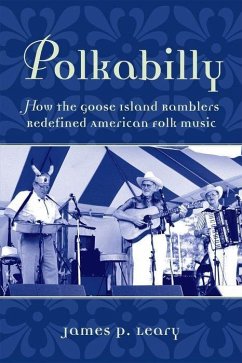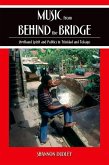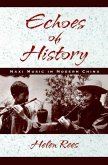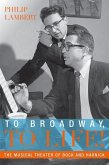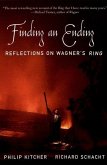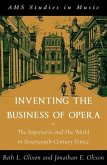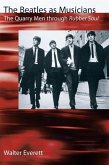A freewheeling blend of continental European folk music and the songs, tunes, and dances of Anglo and Celtic immigrants, polkabilly has enthralled American musicians and dancers since the mid-19th century. From West Virginia coal camps and east Texas farms to the Canadian prairies and America's Upper Midwest, scores of groups have wed squeezeboxes with string bands, hoe downs with hambos, and sentimental Southern balladry with comic "up north" broken-English comedy, to create a new and uniquely American sound. The Goose Island Ramblers played as a house band for a local tavern in Madison, Wisconsin from the early 1960s through the mid-1970s. The group epitomized the polkabilly sound with their wild mixture of Norwegian fiddle tunes, Irish jigs, Slovenian polkas, Swiss yodels, old time hillbilly songs, "Scandihoovian" and "Dutchman" dialect ditties, frost-bitten Hawaiian marches, and novelty numbers on the electric toilet plunger. In this original study, James P. Leary illustrates how the Ramblers' multiethnic music combined both local and popular traditions, and how their eclectic repertoire challenges prevailing definitions of American folk music. He thus offers the first comprehensive examination of the Upper Midwest's folk musical traditions within the larger context of American life and culture. Impeccably researched, richly detailed and illustrated, and accompanied by a compact disc of interviews and performances, James P. Leary's Polkabilly: How the Goose Island Ramblers Redefined American Folk Music creates an unforgettable portrait of a polkabilly band and its world.
While the Goose Island Ramblers are a remarkable group, they are entirely representative of the many bands who, from the 1920s through the 90s, have synthesized an array of "foreign," "American," folk, popular, and hillbilly musical strains to entertain rural, small town, working class audiences throughout the Midwest. Based on more than twenty years of field research, this study of the Goose Island Ramblers alters our perception of what American folk music reallyis. The music of the Ramblers - decidedly upper Midwest, multicultural, and inescapably American - argues for a most inclusive, fluid notion of American folk music, one that exchanges ethnic hierarchy for egalitarianism, that stresses process over pedigree, and that emphasizes the pluralism of Americanmusical culture. Rootsy, constantly evolving, and wildly eclectic, the polkabilly music of the Ramblers constitutes the American folk music norm, redefining in the process our understanding of American folk traditions.
While the Goose Island Ramblers are a remarkable group, they are entirely representative of the many bands who, from the 1920s through the 90s, have synthesized an array of "foreign," "American," folk, popular, and hillbilly musical strains to entertain rural, small town, working class audiences throughout the Midwest. Based on more than twenty years of field research, this study of the Goose Island Ramblers alters our perception of what American folk music reallyis. The music of the Ramblers - decidedly upper Midwest, multicultural, and inescapably American - argues for a most inclusive, fluid notion of American folk music, one that exchanges ethnic hierarchy for egalitarianism, that stresses process over pedigree, and that emphasizes the pluralism of Americanmusical culture. Rootsy, constantly evolving, and wildly eclectic, the polkabilly music of the Ramblers constitutes the American folk music norm, redefining in the process our understanding of American folk traditions.

